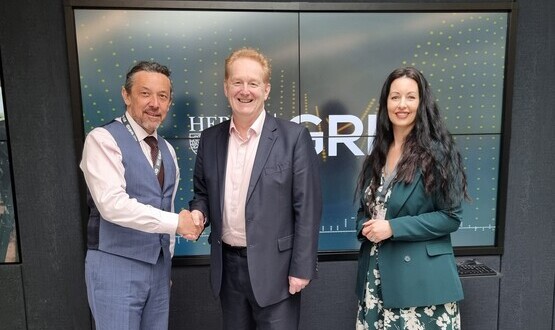The secrets of e-health success
- 12 November 2008
 Following a few basic rules can dramatically improve the chances of success of e-health projects, just don’t expect to see cash-releasing benefits. This was message given to industry experts gathered in Copenhagen last week for the joint EHTEL/EUROEC symposium.
Following a few basic rules can dramatically improve the chances of success of e-health projects, just don’t expect to see cash-releasing benefits. This was message given to industry experts gathered in Copenhagen last week for the joint EHTEL/EUROEC symposium.
Dr Karl Stroetman is the head of empirica, the German technology research firm that has, over the past five years, become the European Commission’s favourite source of research on e-health market development.
In a series of Commission-funded research projects empirica has examined the business case for e-health investments. Over recent years, it has examined projects ranging from e-procurement to teleradiology and criss-crossed Europe and beyond, speaking to experts and practitioners.
Speaking last week at the EHTEL/EUROREC symposium held as part of the World of Health IT conference, Dr Stroetman offered his distilled wisdom gleaned from years of research and the a series of heavy reports.
His number one piece of advice is to be flexible. “You should have a vision, but don’t be too rigid. Be pragmatic, but be prepared to fail.” Failure, as long as lessons are learned from it, can actually be healthy, said Dr Stroetman.
Pointing to Denmark’s Medcom, widely held up as the poster boy of European e-health projects, he said it had taken them three attempts to get it right. Dr Stroetman said that managing change was a reality in every project, and often needed on a day-by-day basis.
Dr Stroetman also called for big bang approaches to be avoided. “If you go for big bang approaches it appears that nobody can ever cope with this.” Drawing on the Medcom approach and experinece in Scotland of developing the emergency care record, he said that small iterative steps offered a much better propsect of success.
The next essential ingredient, he argued, is clinical leadership. “If you don’t have it, forget it, don’t even start.” He said that clinical leadership, from clinicians with a strong interest in and commitment to the use of ICT, was a hallmark of almost every successful e-health project he’s encountered.
One powerful way to secure clinician buy-in was through research, advised Dr Stroetman. “Clinical research on benefits can be very useful to convince clinicians and politicians.”
He added, that e-health must also be seen as just one piece of a much bigger jigsaw, which spans health policy, politics and professional matters, together with economic and social issues, all of which are fluid. “E-Health is only ever one of many elements.”
In making the case for investments in e-health he advised regular return on investment (ROI) calculations won’t work. “You have no chance when you have classic ROI formulae. E-health benefits are not cash releasing, and although you will get a lot of benefits across the healthcare system and for patients they are not cash usually releasing for the organisation that makes the investment.”
He added: “E-health will not save money, it will cost money.”
From the projects examined, he said there were two common themes that always emerged on costs and benefits. “Costs are usually under-estimated and benefits are always over-estimated. Everyone is too optimistic.”
He said that frequently, the main expenses involved with e-health projects were “not the obvious costs such as hardware and licenses” and that, in fact, such costs “can often be the lowest costs”. He gave the example of one Chicago hospital that had spent $15-20m on just training and education to implement a new EPIC system.
Drawing on the 20-30 implementations examined by empirica for the European Commission, Dr Stroetman said there were other common themes, or ingredients of success. One of the most important, he said, was that the organisation had a track record on use of ICT. “Many of the successful e-health projects we looked at already had experience gained from working with legacy systems.”
Dr Stroteman argued that carrying out the kinds of studies that empirica has been working on over recent years was “not enough”, and said there was an urgent need to learn and apply lessons learned.
“Just to do this kind of study is not enough. It has to get into daily practice. Otherwise why spend all this damned money?”
Link



